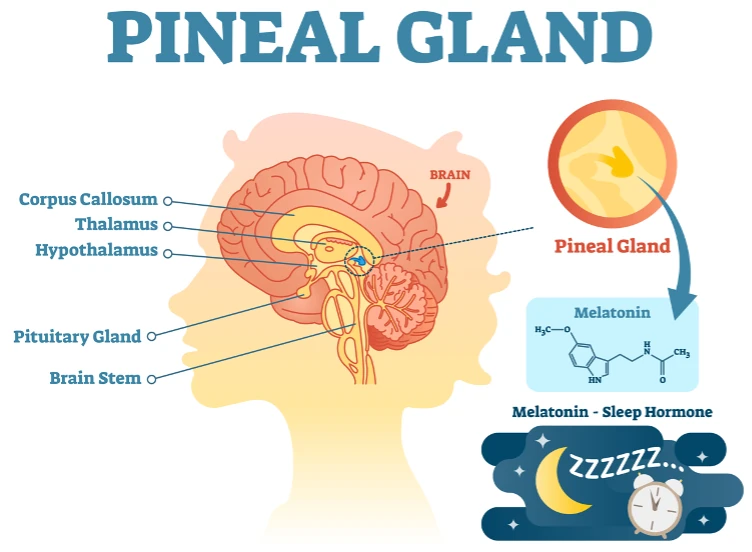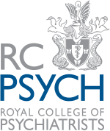Sleep talking, or somniloquy is a common phenomenon that affects up to 66.8% of people at some point in their lives. This involuntary behaviour occurs while the individual is asleep, often going unnoticed until someone else mentions it. While typically harmless, sleep talking can sometimes indicate underlying issues. This article explores the phenomenon of sleep talking, including its causes, types, risks, and strategies for treatment and prevention.
What is sleep talking?
Sleep talking is a type of parasomnia, a category of sleep disorders characterised by abnormal movements, behaviours, or experiences during sleep. It involves vocalisations ranging from simple mumbling to full sentences, occurring while the individual is asleep. These vocalisations can occur during any stage of sleep, although they are more common during the lighter stages of non-rapid eye movement (NREM) sleep and rapid eye movement (REM) sleep. These episodes can last seconds or minutes and affect people of all ages.
It’s important to note that since the person is asleep during the episode, they are usually unaware of what they are saying and often have no memory of the event the next day. This lack of awareness sets sleep talking apart from conscious, wakeful speech.
What causes sleep talking?
The actual cause of sleep talking is not fully understood, but research suggests that several factors may contribute to this phenomenon:
Genetics: Studies have shown that sleep talking tends to run in families, indicating a genetic predisposition. If you have a parent or sibling who talks in their sleep, you may be more likely to experience it yourself.
Brain chemistry: Neurotransmitters, the chemical messengers in the brain, play a crucial role in regulating sleep and wakefulness. Imbalances in these chemicals may contribute to sleep talking and other sleep disorders.
Sleep stages: Sleep talking can occur during any stage of sleep, but it’s more common during the transition between sleep stages or during lighter stages of sleep. This is why sleep-talking episodes often coincide with brief awakenings that the individual may not remember.
Additionally, external factors and underlying conditions can trigger or exacerbate sleep talking. High levels of stress or anxiety can disrupt normal sleep patterns and increase the likelihood of sleep-talking. This is one reason why sleep talking may be more frequent during periods of emotional turmoil or significant life changes. Sleep deprivation can also lead to more frequent and intense episodes of sleep talking by causing fragmented sleep patterns.
In some cases, sleep talking may be a symptom of other sleep disorders such as sleep apnoea, REM sleep behaviour disorder, or night terrors. It can also be associated with certain mental health conditions like post-traumatic stress disorder (PTSD) or depression. Understanding these potential causes can help individuals and healthcare providers identify the root cause of sleep talking and develop appropriate management strategies.
Are there different types of sleep talking?
Sleep talking manifests in various forms, ranging from simple sounds to complex dialogues. It can be classified into the following types.
Incoherent sounds: The most common type of sleep talking involves incoherent or nonsensical vocalisations, including mumbling, gibberish, or single words. These utterances are usually fragmented and difficult to understand. For example, a person might say something as simple as “no” or “stop” without relating it to any logical conversation. This form of sleep talking tends to occur more frequently during the lighter stages of sleep.
Single words or short phrases: Some sleep talkers may utter recognisable words or short phrases. These can be random and unconnected, or they may relate to the content of a dream or recent experiences.
Conversations and monologues: In less frequent cases, sleep talkers may engage in full conversations. They might respond to questions or carry on a one-sided dialogue. These episodes can be quite lengthy and may involve complex speech patterns.
Intense vocalisations: In rare instances, sleep talking can manifest as shouting, screaming, or other intense vocalisations. This type of sleep talking is often associated with night terrors or other sleep disorders and may be more distressing for both the sleep talker and their bed partner.
It’s worth noting that the content of sleep talk is often random and nonsensical, rarely reflecting the individual’s true thoughts or feelings. However, in some cases, sleep talk may reflect recent events or concerns in the person’s life, but it does not reliably reveal the individual’s inner thoughts or experiences.
What are the risks of sleep talking?
While sleep talking is generally harmless, it can disrupt the sleep of the sleep talker and his bed partner. Sleep talking causes frustration for bed partners, leading to relationship issues. In severe cases, it may even result in couples choosing to sleep separately, which can impact intimacy and relationship satisfaction. Chronic sleep disruption can have long-term effects on overall health and well-being. This can lead to daytime fatigue, irritability, and decreased cognitive function.
Sleep talking can be a symptom of more serious sleep disorders or mental health conditions. For example, it may be associated with sleep apnoea, which can have significant health implications if left untreated. In extremely rare cases, sleep talking can be accompanied by more complex sleep behaviours, such as sleepwalking or sleep-related eating disorders. These behaviours can lead to injury or other health risks.
While these risks are worth considering, it’s important to remember that for most people, sleep talking is a benign phenomenon that doesn’t require medical intervention. However, if sleep talking is frequent, disruptive, or accompanied by other concerning symptoms, it’s advisable to consult a healthcare professional.
Treating and preventing sleep talking
While there’s no definitive cure for sleep talking, several strategies can reduce its frequency and impact. Since stress and anxiety can trigger sleep talking, stress management techniques such as meditation, deep breathing exercises, and regular physical activity can be beneficial.
Maintaining good sleep hygiene can significantly reduce the likelihood of sleep-talking episodes. This involves sticking to a consistent sleep schedule, creating a relaxing bedtime routine, and ensuring a comfortable sleeping environment. Additionally, it’s beneficial to avoid screens and limit caffeine and alcohol intake, especially in the hours leading up to sleep. These practices promote better overall sleep quality, which minimises sleep talking.
If sleep talking is a symptom of another sleep disorder or mental health condition, treating the underlying issue may help to reduce it. If sleep apnoea is the cause, using a CPAP machine or other treatments can improve overall sleep quality and reduce sleep talking. In situations where sleep talking occurs frequently or is accompanied by other concerning symptoms, it’s important to consult a healthcare professional. He will rule out any underlying sleep disorders and provide personalised advice.
Struggling with sleep talking?
Sleep talking can be a mysterious and sometimes frustrating aspect of our nocturnal lives. It’s a common phenomenon that can be influenced by various factors such as genetics, brain chemistry, stress and sleep quality.
If you’re concerned about your sleep talking or it’s significantly impacting your life or relationships, don’t hesitate to seek professional help. A sleep psychiatrist can provide valuable insights and tailored strategies to address your specific situation. By understanding the causes and implementing good sleep practices, many people can reduce the frequency and impact of sleep talking.
If you’re struggling with sleep talking or other sleep-related issues, don’t let them impact your quality of life. Whether you need guidance on improving your sleep hygiene, want to explore potential underlying causes of your sleep talking, or seek tailored treatment options, consulting a healthcare professional can provide effective solutions. As a leading sleep specialist, we can provide comprehensive evaluations and personalised treatment plans to address your unique sleep concerns. Contact us to schedule a consultation and take the first step towards better sleep.










